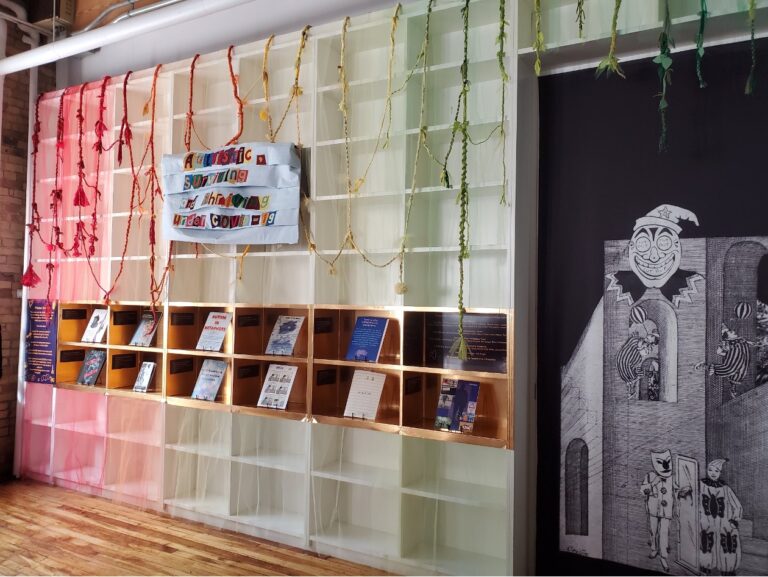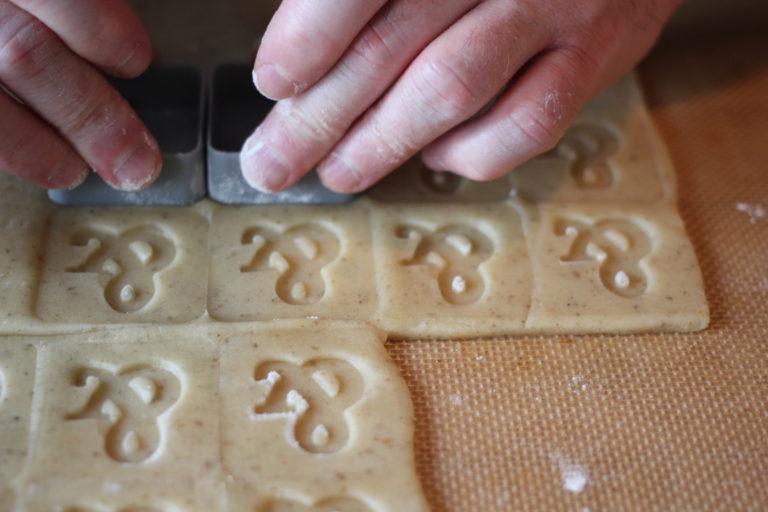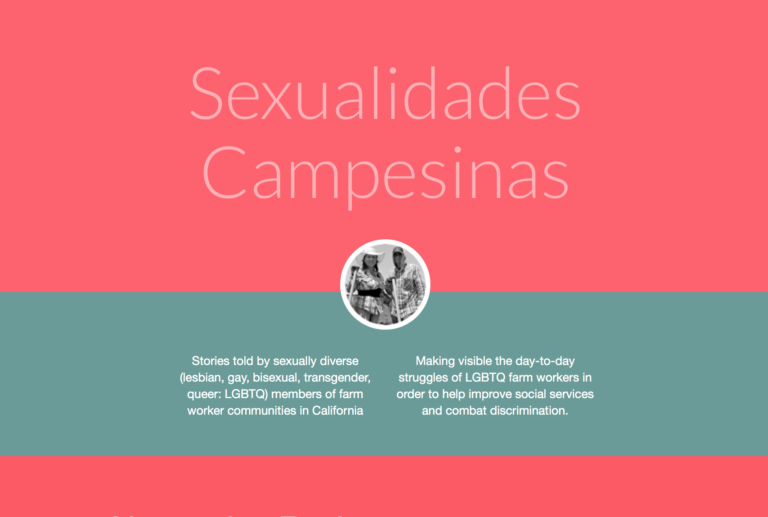This article takes up Mia Mingus’ call to “leave evidence” of how we have lived, loved, cared, and resisted under ableist neoliberalism and necropolitics during COVID-19 . We include images of artistic work from activist zines created online during the COVID-19 pandemic and led by the Re•Storying Autism Collective. The zines evidence lived experiences of crisis and heightening systemic and intersectional injustices, as well as resistance through activist art, crip community, crip knowledges, digital research creation, and the forging of collective hope for radically inclusive autistic futures—what zine maker Emily Gillespie calls “The neurodivergent, Mad, accessible, Basic Income Revolution.” We frame the images of artistic work with a coauthored description of the Collective’s dream to create neurodivergent art, do creative research, and work for disability justice under COVID-19. The zine project was a gesture of radical hope during crisis and a dream for future possibilities infused with crip knowledges that have always been here. We contend that activist digital artmaking is a powerful way to archive, theorize, feel, resist, co-produce, and crip knowledge, and a way to dream collectively that emerged through the crisis of COVID-19. This is a new, collective, affective, and aesthetic form of evidence and call for “forgetting” ableist capitalist colonialism and Enlightenment modes of subjectivity and knowledge production that target different bodies to exploit, debilitate, and/or eliminate, and to objectify and flatten what it means to be and become human and to thrive together.
Keyword: community
Review of Global Entertainment Media: A Critical Introduction by Lee Artz (Blackwell)
Artz gives overwhelming evidence of how the cultural hegemony of individualism and consumerism is promoted everywhere by transnational media corporations (TNMCs), so that current social relations in capitalism are reproduced and reinforced. The reader can get a clear outlook of TNMCs and their impact on the diversity, hybridization, and standardization of global culture and outlooks.
Rage Grief Comfort &
Documentation and analysis by Laurie Beth Clark and Michael Peterson of a project by the arts collective Spatula&Barcode: In December 2016 a major city building in Madison, Wisconsin was closed for renovation, and enterprising curators installed a massive temporary art exhibition, titled Municipal. As the community was in the midst of processing the presidential election results, we created Rage Grief Comfort & with the explicit aim of moving participants through and past their immediate emotions.
Ethics, Collaboration, and Knowledge Production: Digital Storytelling with Sexually Diverse Farmworkers in California
This article outlines the digital storytelling methods used for a community based research project focused on issues of sexuality among California farmworkers: Sexualidades Campesinas. We note how our process of collaboration in the creation and production of digital stories was shaped by the context and our envisioned storytellers. We then offer a critical analysis of our own unique experience with digital storytelling in this project, focusing on a handful of concepts key to understanding the nature of our collaborative production process: community, affect and collaboration, storytelling, performance, and mediation, with an eye to the problem of ethics.
“Make the Music with Your Mouth”: Sonic Subjectivity and Post-Modern Identity Formations in Beatboxing
This paper investigates the possibilities of pleasure, sound, and the disruption of the iterations of identity in progressive time. How does sound reformulate how we see whiteness, heterosexuality, and female-bodied people? Beatboxing as a citational and intertextual form—phatic, rhythmic, sonorous, and lyrically side-steps some of the traps of rap music or other hip hop forms through its embodiment of sounds rather the logics of lyrics and traditional musical structure. In that way it remakes—queers—our alliances, allegiances, and sonic sensibilities.
“A Very Soft or Long Attack and Release” or Heyyyyy: Queer Extensities
Amalle Dublon’s piece takes up extensity — the drawing out of certain sounds in verbal speech — as a phonic gesture that exceeds the temporal (and we might argue productive) regulations of merely representative, coded speech. In doing so, extensity creates what Dublon describes as “a kind of anticipatory penumbra that halos and holds the unstable coordination of mutual respondents.” Here, Dublon’s work seemingly provides an entry point into imagining queer community-formation as a project made possible by phonic excess.



